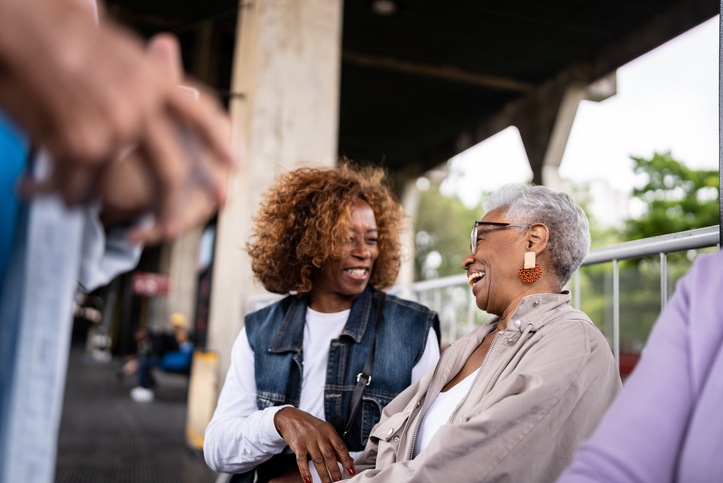How to Reduce Loneliness
Loneliness has been identified as a major public health concern with significant implications for physical health, mental health and well-being. APA’s latest Healthy Minds Monthly national poll found that 30% of adults say they have experienced feelings of loneliness at least once a week over the past year. Research has found that loneliness and social isolation may be as bad for your health as obesity or smoking 15 cigarettes a day, and significantly impacts mental health.1 While it has been a concern for some time, the COVID-19 pandemic increased the problem as well as public awareness of the issue.
Last May, U.S. Surgeon General Dr. Vivek Murthy issued an advisory calling for action to address the public health crisis of loneliness and isolation. The advisory, Surgeon General’s Advisory on Our Epidemic of Loneliness and Isolation (.pdf), provides recommendations for actions that individuals, governments, workplaces, health systems, and community organizations can take to increase connection and improve their health.

A new review study published in late 2023 looked at efforts to address loneliness and what is effective and what works to help people be less lonely.2 The interventions reviewed in the study included group sessions, individual sessions, online delivery, in-person delivery, hybrid online/in-person combination, and phone delivery. these studies sought to reduce loneliness through interventions involving social connection, friendship or community integration such as community exercise programs, mindfulness-based stress reduction, education to help understand loneliness and develop coping strategies, and cognitive behavioral therapy. Most of the interventions took place over six months or less.
The majority of effective interventions involved some form of active participation in in-person interaction with a group or facilitator. Group sessions were preferred to individual formats and having interaction between sessions was beneficial. Including “between session interaction with the facilitator, and more especially with a group network, not only assists through the duration of the intervention but may also provide longer-term benefits through improved connections even after the formal end of an intervention,” the authors note. They also found that it was helpful to accommodate different learning styles and that behavioral change techniques, such as cognitive behavioral therapy, were effective.
Loneliness Among Young Adults
One challenge the researchers noted was a lack of information on interventions for younger populations (most of the research is among older adults). Recent data highlight that loneliness is an important concern among young adults. According to a Meta and Gallup poll last fall, about 25% of teens aged 15 to 18 and 27% of young adults aged 19 to 29 feel lonely compared to 17% of adults 65 and older.3 A separate poll of college students found 39% had experienced loneliness the previous day.4 Similarly, APA’s January 20024 poll found young adults most likely to be experiencing loneliness.
Surgeon General Murthy addressed this concern with a targeted initiative intended to help students build and strengthen relationships and encourage others to incorporate social connections into their daily lives.5 The center of the initiative was the 5-for-5 Connection Challenge, challenging students to take 5 actions for 5 days that express gratitude, offer support or ask for help from people in their lives. Murthy highlighted the challenge in a nationwide tour of college campuses last fall.
The review study authors conclude while there is “no ‘quick fix’ to loneliness,” that proactive behaviors can be learned, and practices and community connection can be built into one’s lifestyle to maintain the benefits.
References
- Holt-Lunstad, J., Smith, T. B., Baker, M., et al. (2015). Loneliness and Social Isolation as Risk Factors for Mortality: A Meta-Analytic Review. Perspectives on Psychological Science, 10(2), 227–237. https://doi.org/10.1177/1745691614568352
- Morrish, N. Choudhury, S. Medina-Lara, A.(2023). Loneliness: A Systematic Review of Intervention Characteristics. BMC Public Health, 23:2214 https://doi.org/10.1186/s12889-023-17097-2
- Maese, E. 2023. Almost a Quarter of the World Feels Lonely. Gallup, Oct. 24, 2023
- Hrynowski, Z. and Marken, S. 2023. College Students Experience High Levels of Worry and Stress, Gallup, Aug. 10, 2023
- HHS. 2023. U.S. Surgeon General Wraps Successful Nationwide College Tour, Launches 5-for-5 Connection Challenge to the American Public. Press Release, Dec. 4, 2023 4.
